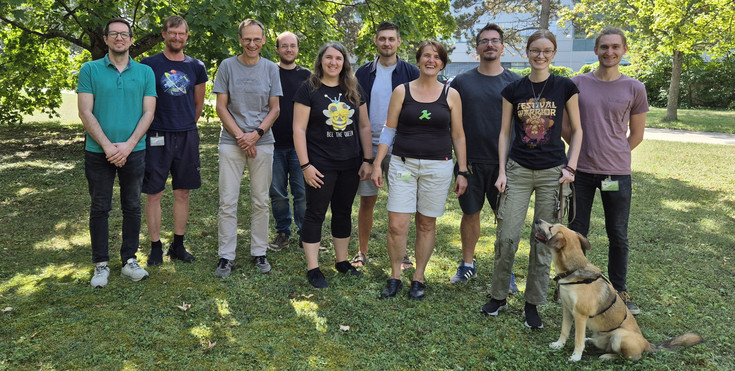Plant-Microbe Metabolomics
Our working group explores the fascinating world of plant-microbe metabolomics, where the formation and intricate exchange of metabolites shapes interactions and drives biological processes. By leveraging cutting-edge analytical tools, we decode the metabolic profiles of plants and microbes and uncover how their metabolism responds to the respective interaction partner, environmental changes and stressors.
Core activities
Our research is carried out in close co-operation with Austrian and international partners from various disciplines such as computer science, molecular biology, mycology, plant science, or entomology and comprises the following core activities:
- Development and application of advanced metabolomics workflows
- Study of microbes, plants, insects & their interactions
- Analytics of specialized, primary & volatile metabolites
- Discovery, purification, and characterization of low molecular weight natural products
- Quality assurance in metabolomics
A focus of our research consists of the interdisciplinary study of the metabolism of plants and microbes. By investigating the molecular mechanisms underlying interactions between these organisms, we aim to contribute to a better understanding of both plant diseases and mutualistic biological co-operations.
Members

Photo of group members.
The working group and core facility BMoSA staff in 2024. From left to right: Nenad Zaric, Bernhard Seidl (BMoSA), Rainer Schuhmacher, Christoph Bueschl, Maria Doppler (BMoSA), Tomas Rypar, Alexandra Parich, Samuele Risoli, Christina Maisl, David Ruso (BMoSA); Front row: Loki
Our approach
For the development of improved metabolomics workflows and their application in biological studies, we closely collaborate with the BOKU core facility BMoSA, who hosts and operates cutting-edge instrumentation (https://boku.ac.at/cf/bmosa). Together, we combine liquid chromatography-high resolution mass spectrometry (LC-HRMS) and gas chromatography-mass spectrometry (GC-MS) with stable isotope-assisted approaches. The use of 13C, 15N, 34S, and Deuterium-enriched tracer metabolites or globally labelled organisms allow exploiting advanced analytical workflows and biological studies.
Research Projects
In our research projects we investigate filamentous fungi (e.g., Fusarium, Trichoderma, Botrytis), plants (e.g., wheat, maize, grapevine, or pepper), or insects like (e.g., bees or grape phylloxera). A major aim of our research projects is to provide novel basic insight into the molecular mechanisms underlying antagonistic and mutualistic biological interactions, as well as abiotic factors.
Please find here a selection of the most recent research projects carried out in the group. A short description of each projects can be accessed from the BOKU research portal via the link:
- Metabolomics of cold stress tolerance to plants mediated by psychrotolerant bacteria (COLDERANCE)
- Chemical Crosstalk in Mycoparasitic Interactions (ChemTalk)
- Metal-induced resistance in pepper against Botrytis cinerea (MetalPrime)
- playNICE - Biological Nitrification Inhibitors in plants
- Neonicotinoid metabolism in honey bees
Developed Software tools
We specialize in developing methods and software for untargeted metabolomics, helping researchers uncover and analyze complex metabolic data. Our tools are designed to streamline data processing, identify unknown compounds, and reveal new biological insights. Explore our work to see how we’re advancing metabolomics research!
Publications
Publications of the group can be accessed here
